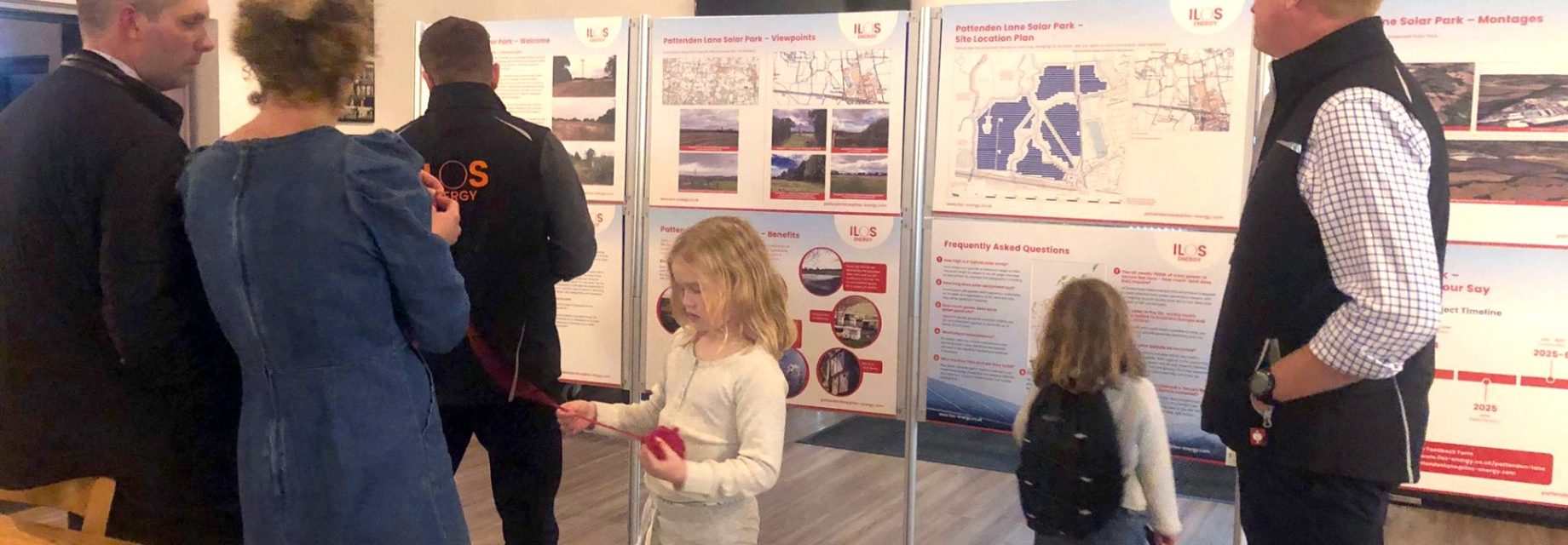The recent publication of the ‘Community Engagement Good Practice Guidance’ by the trade association, Solar Energy UK, is a key recognition of the importance of forging positive, proactive relationships between developers and the communities within which they operate. As local communities become an increasingly important stakeholder in renewable energy project development, the guide reminds developers of the steps they can take to build positive local relationships. This is crucial – not only according to the proper compliance for community engagement under current planning regulations, but also for the opportunities afforded to project success by going above and beyond the requisite minimum in the wider local consultation process.
In short, and as ILOS recognises, community engagement is essential for the successful implementation and operation of solar projects. Good engagement ensures that both the local community’s needs and project objectives align, leading to smoother project progression and enhanced public support. The guidance document elaborates on various strategies and tools that developers can use to ensure effective communication and cooperation with local communities. It highlights, for instance, the benefits of early engagement, which can significantly reduce misunderstandings and mitigate potential conflicts. Engaging with communities early in the project lifecycle allows developers to address concerns proactively, fostering a more accepting and supportive environment for project development.
The UK government’s ambitious target to secure 50GW of solar capacity by 2030 underscores the need for streamlined project development processes, including effective community engagement. Government policies increasingly support renewable energy projects, and the guidance from Solar Energy UK provides a roadmap for developers to align their projects with community interests and national clean energy objectives. This alignment is crucial not only for expediting project approval and implementation but also for enhancing the social licence to operate within diverse community settings.
What this means for landowners
Landowners and communities stand at the intersection between national targets for clean energy and new development and construction. For landowners, the guidance offers insights into how projects can be structured to maximise land use and financial returns, potentially transforming underutilised land into new sources of renewable energy and additional income. For communities, effective engagement means more transparent decision-making processes, better integration of projects into local settings, and direct economic benefits through job creation and local procurement.
This is also being supported at a political level, particularly under the new Labour government. Modifications to the National Planning Policy Framework (NPPF) are currently in consultation – at the time of writing – which will guide planners to approve projects that support new renewable energy or low carbon development. Should these adjustments, and others, be passed into legislation – and it’s likely they will be – communities will want a voice in the planning process.
The guidance document is rich with case studies that demonstrate the real-world application of its principles. These examples provide tangible evidence of how thoughtful engagement strategies can enhance project success rates and community satisfaction. For example, projects that have effectively used local labour and resources have not only gained community support but have also contributed positively to local economies, reinforcing the mutual benefits of solar projects.
ILOS’s alignment with best practices
The ‘Community Engagement Good Practice Guidance’ is more than a set of recommendations – it is a testament to the solar industry’s dedication to responsible and sustainable development. For ILOS Energy, this guidance reinforces our strategies and enhances our efforts to lead by example, ensuring that our projects deliver comprehensive benefits to all stakeholders involved. As we continue to embrace these guidelines, we reinforce our commitment to being a trusted partner in the UK’s solar transformation.
At ILOS, our commitment to exceeding standard consultation practices is evident in our detailed planning and bespoke community engagement strategies. Our approach, deeply aligned with the principles laid out in the new guidance, ensures that our solar projects are not only economically viable and environmentally sound but also socially beneficial. By integrating community feedback directly into our project designs where possible, we foster stronger, more resilient community relationships.
